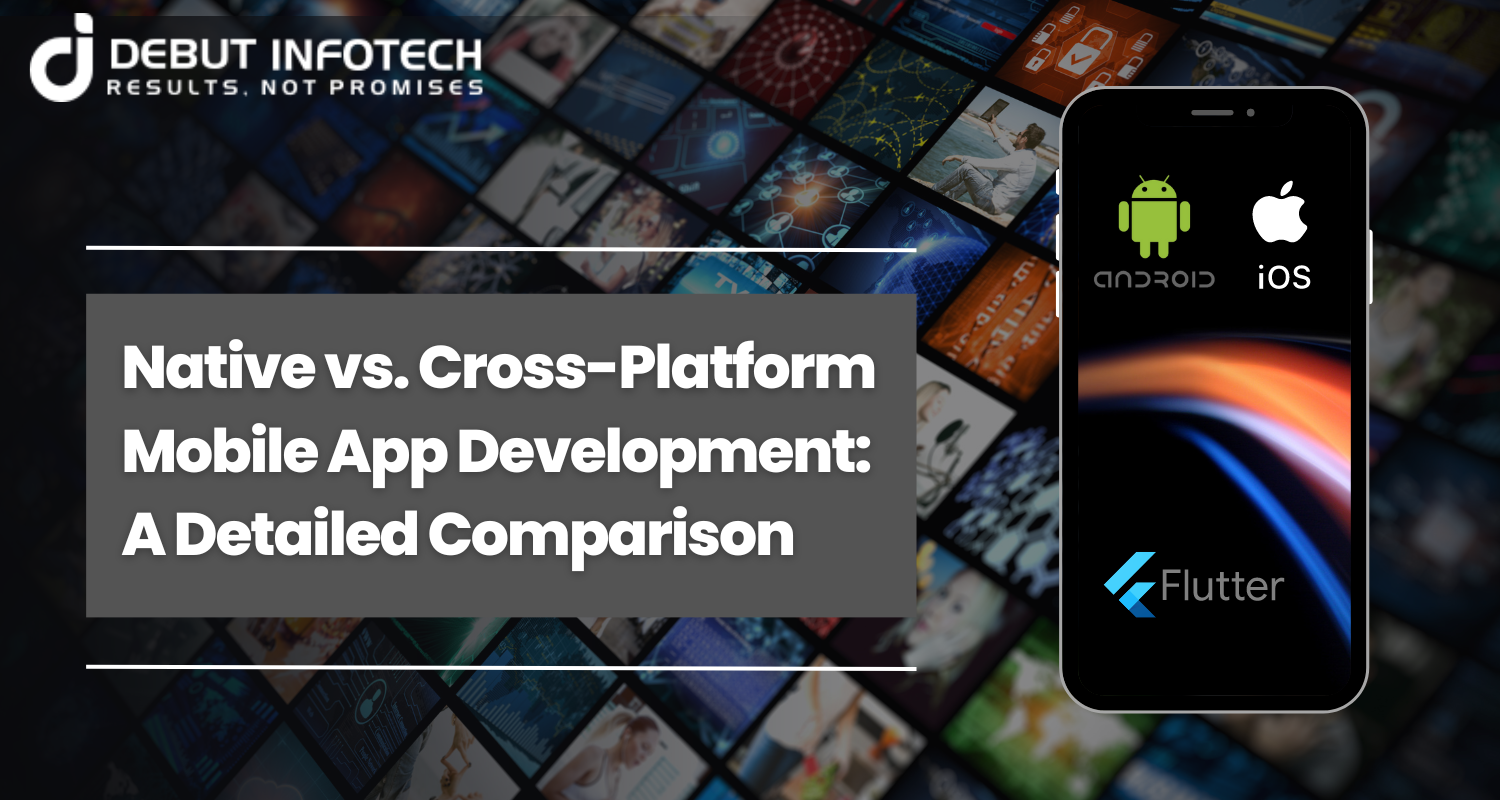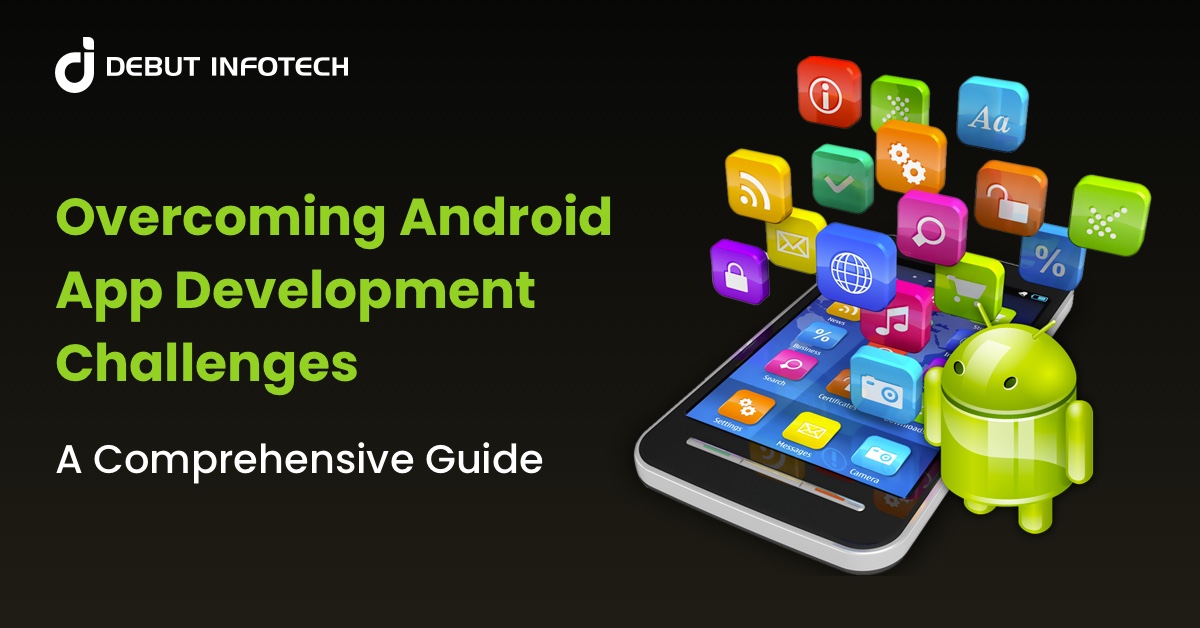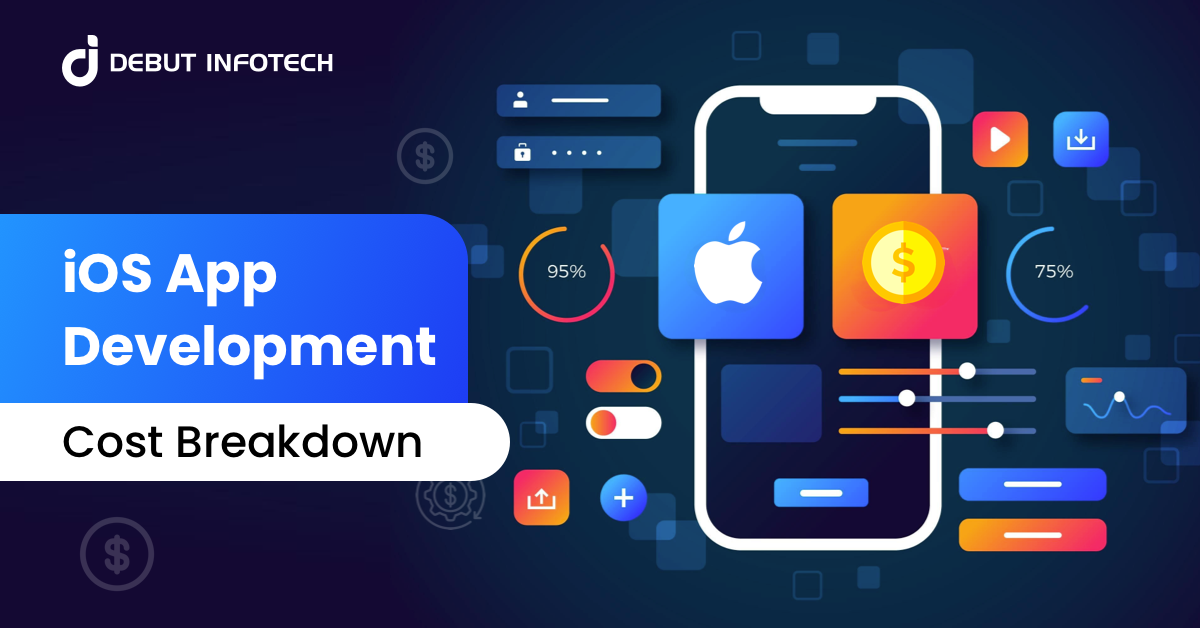Table of Contents
Native vs Cross-Platform Mobile App Development: A Detailed Comparison
January 19, 2018

January 19, 2018
Do you have an exceptional app idea and want it to turn into a result-driving mobile app? Well, it’s a great idea as people nowadays are more dependent on apps for their day-to-day tasks.
According to Statista, in 2022, 34 billion apps were downloaded from the App Store and 114 billion from the Google Play Store. It is estimated that by 2026 this number will reach 143 billion, a growth of about 30%.
This indicates that more and more people are using mobile apps for making critical decisions in their lives. These huge numbers show that businesses that don’t invest in a mobile app are left behind by the competition and may lose a lot of customers. But what would be the platform for your app? Should you go cross-platform, choose native, or combine the two? We understand how much chaos it creates in someone’s mind who only has thought of getting a neat application.
So, let’s dig deep and uncover native vs cross-platform: what you should choose to stand out among competitors in 2023.
An Overview Of Native vs Cross-Platform Mobile App Development
The ultimate purpose of the mobile app development process is to build unique and engaging UI/UX along with responsive and functional features. However, most entrepreneurs are not able to make a decision because of the never-ending native vs cross-platform app debate. Thus, let’s jump straight into it and try to gain knowledge about the two different mobile app types.
Native Mobile Apps
Native mobile app development is a process that solely focuses on developing apps exclusively for a single platform i.e., operating system. These apps work only on one particular device or platform be it Android or iOS. Each OS comes with its own guidelines, programming languages, and integrated development environments.
Native Android apps can be built using Kotlin or Java whereas native iOS apps can be made using Objective-C, or Swift. If your main objective is to achieve an engaging user experience, high performance, and security, it’s better to choose native apps. Although this development process is a bit time-consuming and expensive, it is best for attracting users and ranking high in app stores.
The most used tools for Android app development include Android Studio and IntelliJ IDEA. And for iOS app development XCode and AppCode are mostly used.
Examples Of Popular Native Apps
The most famous native apps include:
- Spotify
- Google Maps
Pros of Native Apps
Below are some advantages of building a native app for your business:
- Apps with high-performance user experiences
- Apps with high-end security and data protection
- Apps offering better performance in offline mode
- Apps with better visual enhancements
- Hardware sensor integrations for better services
Cons of Native Apps
Below are some limitations of native apps:
- High development costs
- High maintenance costs
- No code reusability
- Increased time-to-market
Cross-Platform Apps
In comparison to native app development, cross-platform development is all about using a single code base across different platforms. For the execution part, the codebase is integrated and combined with the runtime environments of operating systems. The environments, thus, interpret the app source code at runtime and run it. The code of such apps is made platform-independent, however, the environment is platform-specific.
The concept of writing code once and reusing it again on different platforms helps in reducing the app development cost. If your goal is to develop an app for different devices at a low cost, cross-platform is for you. It provides hassle-free implementation, affordable development, and robust functionality.
Some famous tools used for cross-platform app development include Flutter, React Native, and Xamarin.
Examples Of Popular Cross-Platform apps
The most famous n apps include:
- Skype
- Airbnb
- Walmart
Pros of Cross-Platform Apps
- Apps with reduced time-to-market
- Apps with the flexibility to make changes
- Apps with a reusable and sharable code base
- Apps that are easy and fast to develop
- Apps with easy maintenance
- Less mobile app development costs
Cons of Cross-Platform Apps
- Poor User Experience
- Cascading effect
- Difficult to integrate into local settings
Native vs Cross-Platform App: Ease Of Development
The time and money spent on creating an app is mostly determined by the development phase. So, the more easy it is to build, the more likely it is that the ROI will be high. Let’s look at different parts of native vs cross-platform app development to see how hard it is to make a native or cross-platform app.
Ease Of Testing
Prior to releasing your software to the public, testing it thoroughly is essential. You may not want to leave a flaw in the application while users are using it.
Testing native applications is challenging since different app versions, such as iOS and Android, need to be tested separately. In addition, a singular codebase makes testing cross-platform applications relatively straightforward. Therefore, you must evaluate codes that can be reused on multiple platforms.
App Customization
Your brand awareness will increase as users get interested in your apps and vision. Branding consistency across apps relies heavily on the ability to apply unique customizations.
Providing a personalized user experience and ensuring a consistent brand identity across apps are both dependent on a high level of customization. Salesforce found that by using personalization tactics, marketers were able to increase conversion rates by 50%. Customization of native apps is simpler than that of cross-platform apps because of OS-specific user interface elements.
Time To Market
The app development process takes a business idea and turns it into a product that people can use. But the timing to develop and launch that solution is crucial. If you don’t launch your products at the right time, you might lose the market edge.
The type of app that is easier to make will have a faster time to market. Cross-platform apps take less time to make because you don’t have to make them for two different platforms.
Native vs Cross-Platform App: User Experience
User experience has the power to make or break a deal. It helps your mobile app transform engagement into conversions! A report indicates that 70% of consumers abandon their shopping carts due to poor user experience. Therefore, it is essential to design a user interface that enhances the app usage experience and boosts engagement. But native UI vs cross-platform app UI, which do you think is better?
When it comes to user experience, native applications beat out cross-platform ones. Each operating system consists of its own native components and design language. Therefore, if you employ native elements for the user interface, the user experience will be seamless.
For instance, iOS uses a certain design aesthetic that unifies the user experience across all devices. The user experience may deteriorate and consumers may become dissatisfied if your software does not offer a user experience tailored to that OS.
Users can experience OS-specific functionality through native apps. Although they lack some native functionality, cross-platform programs offer a consistent user experience across platforms.
Native vs Cross-Platform App: Performance
Performance plays a crucial role in the success of any mobile app. It ensures that app features are responsive and working properly which in turn will retain and attract more users. A single glitch or bug can cost you a number of users and money. Thus, it is essential to choose a platform that provides high performance.
A study on app performance undertaken by researchers at Poland’s Lublin University of Technology found that native apps performed better than cross-platform ones. Database, operations, compute, and read/write speeds were some of the many areas tested.
It also reflected that the difference in native app vs cross-platform app performance was 60%. Further, native apps took 6.8 seconds whereas cross-platform apps took 7 seconds to download the image.
Native vs Cross-Platform App: Security
When a large amount of information is being entered, retrieved, and transmitted through the app, safety measures must be taken. The security of native apps is higher because they are built-in environments tailored to each operating system.
The code might become muddled and vulnerable when a non-native framework is used to create an app, such as React Native. Furthermore, if you are not using a native framework, you will not have access to native libraries that enable app encryptions.
As far as the maintenance is concerned, cross-platform apps overcome the native apps. In cross-platform, you will only have to maintain the source code or one app. However, proper maintenance is required for both Android and iOS apps.
Native vs Cross-Platform App: Cost Estimate
If the development time increases that means you’ll have to spend more time interacting with them and time-to-market will also increase. In addition, you’ll have to pay more for complex features as well as the developers’ hourly rate.
If you choose native app development, it means you’ll need two standalone apps for Android OS and iOS. This is a time-consuming process and a bit more expensive than cross-platform app development. You can also refer to a detailed guide of mobile app development costs and then you can make an estimate for your app.
Conclusion
Businesses may encounter multiple dilemmas while thinking of getting mobile app development services. One important decision business owners need to take is to determine the app platform i.e., native or cross-platform. To beat such fierce competition, companies must focus on making apps that focus on quality, functionality, and precision. The apps must be able to convince viewers to take intended actions.
Now coming back to native vs cross-platform comparison, there is no single winner. The decision of selecting the platform completely depends on the business types, its products/services, and target customers. If you want proper guidance and a built-in professional development team, contact Debut Infotech. You can send a message online or directly call to have a word with experts.
USA
Debut Infotech Global Services LLC
2102 Linden LN, Palatine, IL 60067
+1-703-537-5009
[email protected]
UK
Debut Infotech Pvt Ltd
7 Pound Close, Yarnton, Oxfordshire, OX51QG, England
+44- 770 -304-0079
[email protected]
Canada
Debut Infotech Pvt Ltd
326 Parkvale Drive, Kitchener Ontario, N2R1Y7
+1-703-537-5009
[email protected]
INDIA
Debut Infotech Pvt Ltd
C-204, Ground floor, Industrial Area Phase 8B, Mohali 160055
9888402396
[email protected]



Leave a Comment